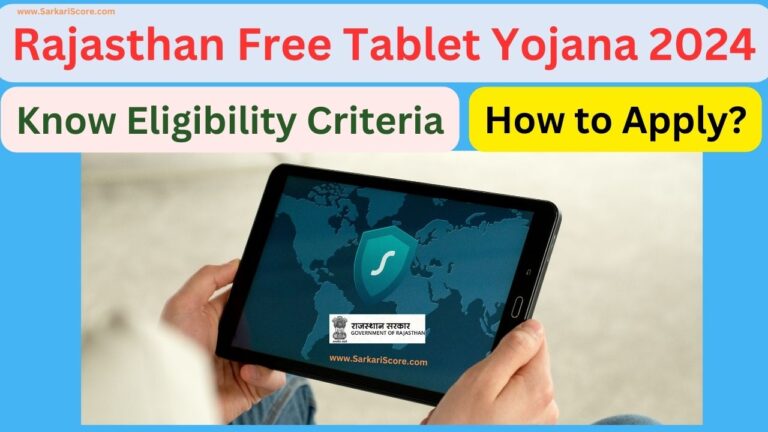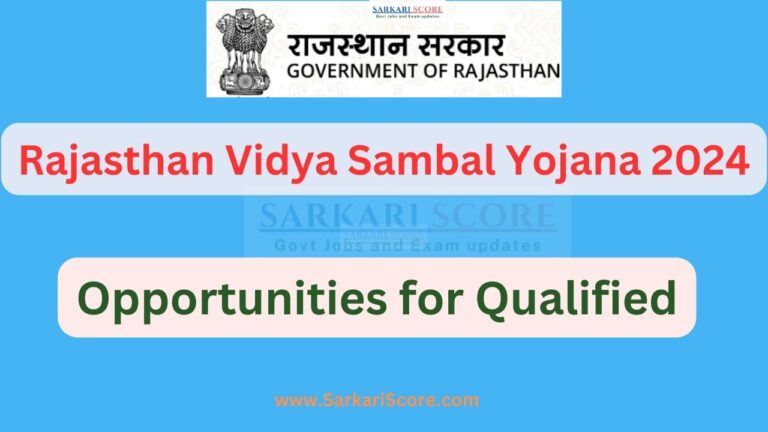Bringing Water Security to Rajasthan: A Look at the Jal Jeevan Mission 2024
Rajasthan, known for its vibrant culture and majestic forts, has always faced water scarcity. Many rural communities struggle daily to access safe drinking water. To tackle this, the Government of India launched the Jal Jeevan Mission (JJM) in 2019. The goal is to provide safe and sufficient drinking water to every household by 2024. This article looks at how the Jal Jeevan Mission 2024 aims to improve water security in Rajasthan, covering its goals, strategies, progress, and impact.
The Jal Jeevan Mission 2024 in Rajasthan
The Jal Jeevan Mission focuses on rural areas in Rajasthan, aiming to ensure everyone has access to safe drinking water. Before this mission, many rural people relied on faraway water sources that were often unsafe. This affected their health and took up a lot of time, especially for women and girls who had to fetch water.
The JJM in Rajasthan uses a community-driven approach. Local Panchayati Raj institutions are key players in planning, implementing, and monitoring water supply projects. This helps address the unique needs of each village and encourages residents to take ownership of the projects.
The Importance of Water Security
Health Impacts: Having safe drinking water reduces waterborne diseases, leading to better health.
Economic Implications: Reliable water supplies support farming and other jobs, boosting the economy.
Key Components of the Mission
Infrastructure Development
- Water Treatment Plants: New and improved plants to purify water.
- Distribution Networks: Extensive pipelines to deliver water directly to homes.
- Storage Facilities: Reservoirs and tanks to store water.
Focus on Functionality
- Continuous Water Supply: Ensuring households get enough water all year round.
- Water Quality Testing: Regular checks to ensure water is safe to drink.
IEC Activities
- Raising Awareness: Teaching people about water conservation and hygiene.
- Community Engagement: Encouraging residents to help make the mission successful.
Community-Driven Approach
Local Panchayati Raj institutions play a crucial role in the JJM. They plan and carry out projects that meet their village’s specific needs, monitor progress, and encourage community involvement to ensure sustainability.
Current Progress
As of July 15, 2024, over 77% of rural households in India have tap water connections. While Rajasthan may be slightly behind the national average, it is making significant progress toward the goal of 100% household coverage by 2024.
Challenges and Solutions
Arid Climate and Water Distribution Issues
Rajasthan’s dry climate and uneven water distribution are major challenges. Solutions include:
- Rainwater Harvesting: Collecting and storing rainwater.
- Greywater Management: Reusing household wastewater for non-drinking purposes.
Remote Villages and Infrastructure
Remote villages, especially in the Thar Desert, face logistical challenges. Solutions involve:
- Adaptive Infrastructure: Building flexible and resilient water systems.
- Transport Solutions: Efficiently delivering materials and equipment.
Groundwater Management
Sustainable groundwater management is vital. Strategies include:
- Recharge Techniques: Enhancing groundwater recharge with check dams and percolation tanks.
- Monitoring: Regularly checking groundwater levels and quality.
Innovative Solutions for Water Security
To ensure long-term water security, the JJM promotes:
- Rainwater Harvesting: Collecting rainwater to reduce reliance on other sources.
- Greywater Management: Treating and reusing household wastewater for irrigation.
Impact of the JJM on Rajasthan
The successful implementation of the JJM can transform lives across Rajasthan. Here’s how:
- Improved Health: Reduces waterborne diseases and healthcare costs.
- Empowering Women and Girls: Frees up time for education and income-generating activities.
- Boosting Rural Livelihoods: Supports farming and kitchen gardens, increasing food security and income.
- Social Equity: Ensures fair access to water, promoting social inclusion.
Case Studies
Several villages in Rajasthan have already benefited from the JJM. For instance:
- Village A: Now has safe drinking water, leading to fewer waterborne diseases.
- Village B: Women and girls have more time for education and work because water is closer.
Future Prospects
The JJM aims to provide every rural household with a functional tap connection by 2024. Long-term goals include:
- Sustainable Water Management: Using innovative practices to ensure water security.
- Community Engagement: Continuously involving communities in water resource management.
Collaboration and Support
Success requires:
- Government Support: Ongoing collaboration between central and state governments.
- Local Partnerships: Involving Panchayati Raj institutions and communities.
Sustainable Practices
To ensure water sources last, the JJM emphasizes:
- Environmental Considerations: Using eco-friendly water conservation methods.
- Innovative Technologies: Leveraging modern technology to improve water supply and quality.
The Rajasthan Jal Jeevan Mission 2024
The Rajasthan Jal Jeevan Mission 2024 is a major effort with the potential to change the state’s water situation. Safe drinking water is essential for health, empowerment, and prosperity. By overcoming challenges and encouraging community participation, the JJM can bring lasting water security to Rajasthan.
FAQs
- What is ambition of the Jal Jeevan Mission?
- To provide safe and sufficient drinking water to every rural household through individual tap connections by 2024.
- How does JJM benefit women and girls in Rajasthan?
- It reduces the time they spend fetching water, allowing more time for education and work.
- What are the key challenges faced by the JJM in Rajasthan?
- Challenges include the dry climate, uneven water distribution, and remote village access.
- How can communities contribute to the success of the JJM?
- By participating in planning, implementing, and monitoring water projects, and practicing water conservation.
- What are the long-term benefits of the JJM for Rajasthan?
- Benefits include better health, empowered women and girls, improved livelihoods, and greater social equity.


